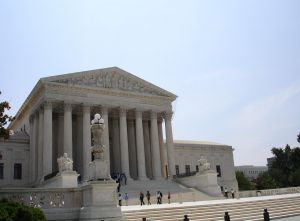 The Supreme Court of Nebraska recently joined an increasing rank of courts across the country that require more than the simple operation of a commercially interactive website to assert jurisdiction over a defendant. Since the dawn of the Internet age and the explosion of online businesses, courts have struggled with the question of precisely when they obtain personal jurisdiction over Internet companies. For years, plaintiffs were successful in advancing the theory that affiliate marketers in one state, for example, could be hauled into court in another state simply because consumers in that state could see their marketing offers and purchase their products. However, courts are increasingly demanding “more” before asserting jurisdiction over foreign web-based businesses.
The Supreme Court of Nebraska recently joined an increasing rank of courts across the country that require more than the simple operation of a commercially interactive website to assert jurisdiction over a defendant. Since the dawn of the Internet age and the explosion of online businesses, courts have struggled with the question of precisely when they obtain personal jurisdiction over Internet companies. For years, plaintiffs were successful in advancing the theory that affiliate marketers in one state, for example, could be hauled into court in another state simply because consumers in that state could see their marketing offers and purchase their products. However, courts are increasingly demanding “more” before asserting jurisdiction over foreign web-based businesses.
Specific Personal Jurisdiction Over Internet Companies
In the past, affiliate marketers faced numerous headaches as they were dragged into foreign state courts to defend frivolous consumer lawsuits. However, as Internet usage became more common and courts began to understand the nature of online businesses, a growing number of courts began demanding that plaintiffs assert more than simply online sales or accessibility before asserting jurisdiction.
In Abdouch v. Lopez, for example, the Nebraska State Supreme Court declined to exercise jurisdiction over a foreign (Massachusetts) online book seller. After reviewing the growing trend requiring more than simple commercial interactivity to assert jurisdiction over online businesses, the court concluded that the plaintiff failed to establish jurisdiction over the online bookseller because the plaintiff had not pled “facts that demonstrate that Nebraska residents were targeted with the advertisement.”
The Nebraska Supreme Court is not alone in reaching this conclusion. Recently the Eighth Circuit Court of Appeals required a similar demonstration of facts showing that Internet activities were “purposefully directed” at the forum state before a court could assert jurisdiction over a defendant. The Third Circuit Court of Appeals in New Jersey has also stated that “the mere operation of a commercially interactive web site should not subject the operator to jurisdiction anywhere in the world. Rather, there must be evidence that the defendant ‘purposefully availed’ itself of conducting activity in the forum state, by directly targeting its web site to the state . . . .” Requiring that a defendant purposefully direct its online activities toward a foreign state before being hauled into that foreign state’s courts is not limited solely to the question of specific jurisdiction.
General Personal Jurisdiction
Recently, the Tenth Circuit Court of Appeals ruled that a website “will subject a defendant to general personal jurisdiction only when the defendant has actually and deliberately used its website to conduct commercial transactions on a substantial basis with a substantial number of residents of the forum.” Other courts have held similarly. Accordingly, it is now essential for defendants to be able to demonstrate that advertisements and sales are not being directed to any particular state. This standard creates a very high hurdle for plaintiffs to overcome before being allowed to proceed with a lawsuit against a web-based entity located in a different state.
Seek Qualified Counsel
Before a lawsuit may proceed against an online business, a prospective plaintiff must demonstrate more than the mere operation of a commercially interactive website. As with all legal questions, bear in mind there are other aspects to the jurisdictional equation which have not been addressed in this blog.
If you are interested in learning more about this topic or if you have been served with legal process from a court located outside of your state, please e-mail us at info@kleinmoynihan.com or call us at (212) 246-0900.
The material contained herein is provided for informational purposes only and is not legal advice, nor is it a substitute for obtaining legal advice from an attorney. Each situation is unique, and you should not act or rely on any information contained herein without seeking the advice of an experienced attorney.
Attorney Advertising



